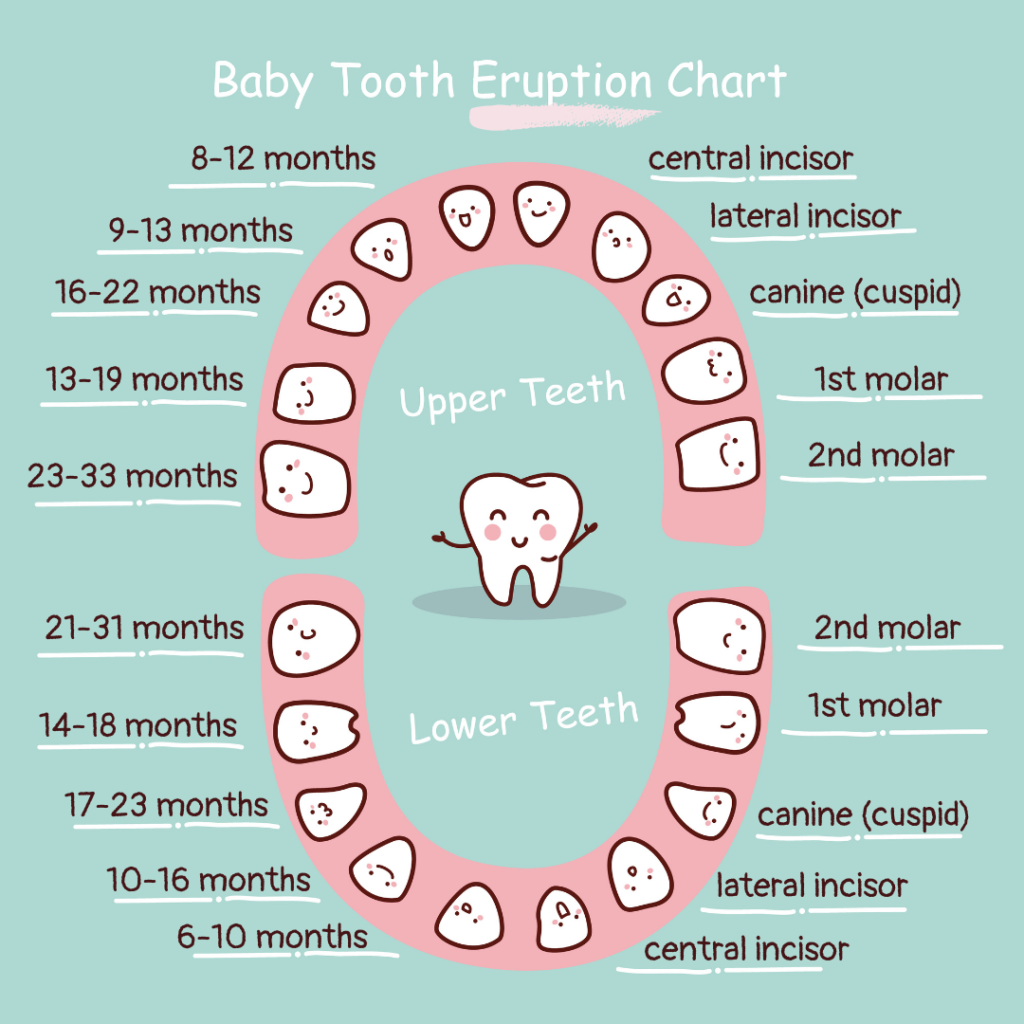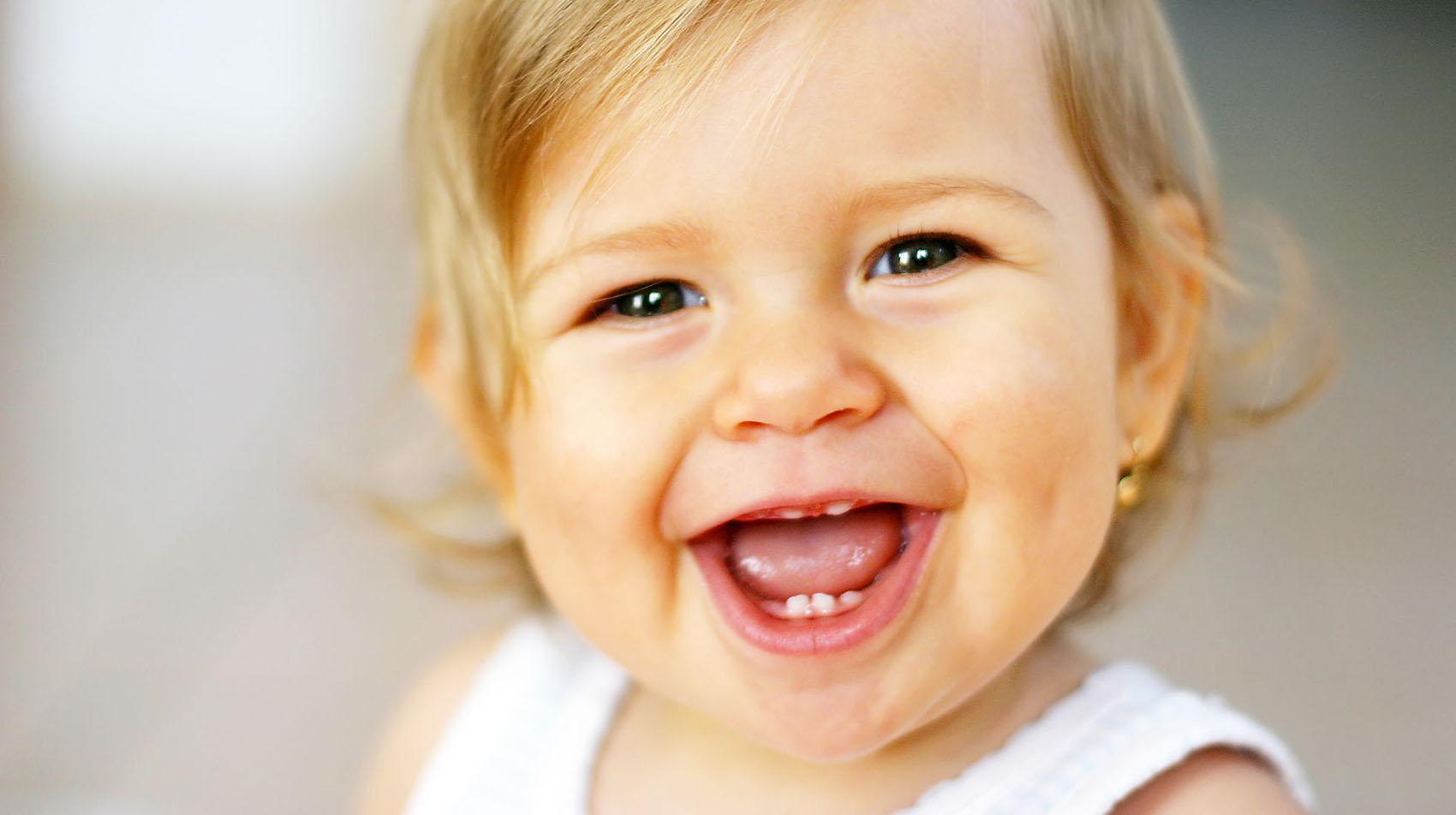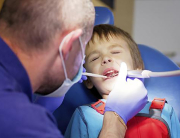Good oral health care should begin in infancy and is key during early childhood years to set your child up for good oral health during their life.
Setting your children up for good oral health starts early, even before baby teeth start to appear. That’s why we’ve written this dental care for babies and toddlers guide, so you know what to expect as your child grows and dental health care needs change. As always if you’re unsure about symptoms or have a more urgent need, please seek advice from one of our friendly dentists at Essential Dental.
Baby teeth development
Baby teeth, as they are often called, are the teeth present in the mouth during childhood. The clinical term for these teeth is deciduous teeth or primary teeth. This set of teeth begin developing while babies are still in the womb.
Baby teeth commonly start to appear in the mouth around 9 months of age, but timing can range from 3 to 12 months. Like all developmental milestones, the time your baby gets its first teeth is individual. However, if your child does not have any teeth present in their mouth by 12 months of age, it is best to have a check-up with a dentist. Baby teeth can erupt in any order, although the central bottom teeth are often first. All 20 baby teeth will usually arrive by the time your child is three years old.

Teething symptoms & advice
Infants can begin showing signs of teething as early as 3 months of age. Symptoms of teething can include drooling, gum rubbing, biting or mouthing objects or being more irritable than usual.
Symptoms that should not automatically be associated with teething include difficulty sleeping, a loss of appetite, coughing, rashes, diarrhoea, vomiting, seizures, or a very high fever. It is best to see your doctor if your child is experiencing these symptoms to rule out other illnesses.
The lower front teeth are often the first teeth to appear with teeth further back in the mouth to come through over the next 24-30 months. See the infographic above for a guide on when you can expect different teeth to erupt.
When a child is teething, it can be tough to make them comfortable. Some suggestions include:
• Attention and cuddles.
• Chilled teething rings or washcloths (not frozen).
• Rubbing the back of a cold spoon over the gums.
• Using a pacifier/dummy.
Please exercise caution if you choose to use the following remedies.
Teething gels
Cold gels can provide relief at first, but this may only last for a short amount of time as the gel is washed away by saliva. Infants can swallow the teething gel placed on the gums and it can be hard to know how much is swallowed. This can make the throat numb causing a choking hazard.
A pacifier/dummy
Do not dip a dummy in sugary spreads such as honey or jam as this can increase your child’s risk of tooth decay if they already have teeth present in their mouth.
Amber beads
Beaded necklaces or bracelets are a potential choking hazard and unlikely to provide any pain relief for your teething child.
At Essential Dental, we encourage parents to bring in infants during their scheduled appointments. We find these small exposures to the sights and sounds of the dental clinic will aid in the child’s familiarisation, and often reduce dental anxiety, by developing a sense of curiosity and cooperation for future dental visits.
To provide the best preventative care for your child’s teeth for the long run, schedule a visit with us. Simply contact the friendly team at Essential Dental Golden Grove today
on (08) 8251 7677 so you can ‘discover the difference’.







